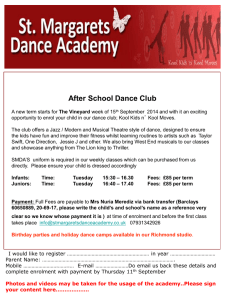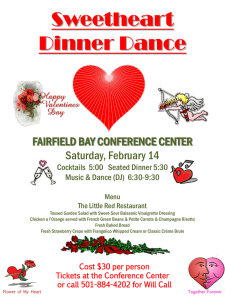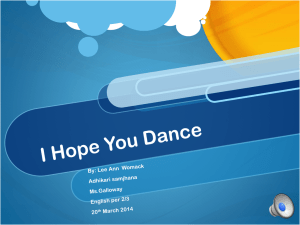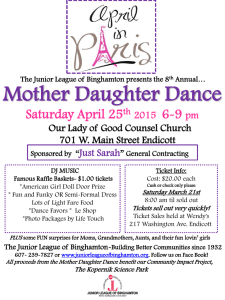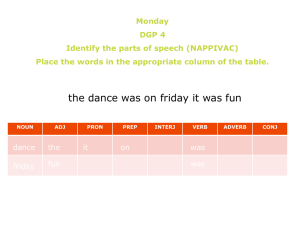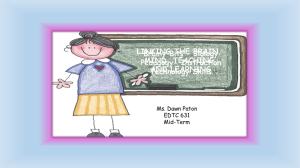music and dance education in ghana: the way forward
advertisement
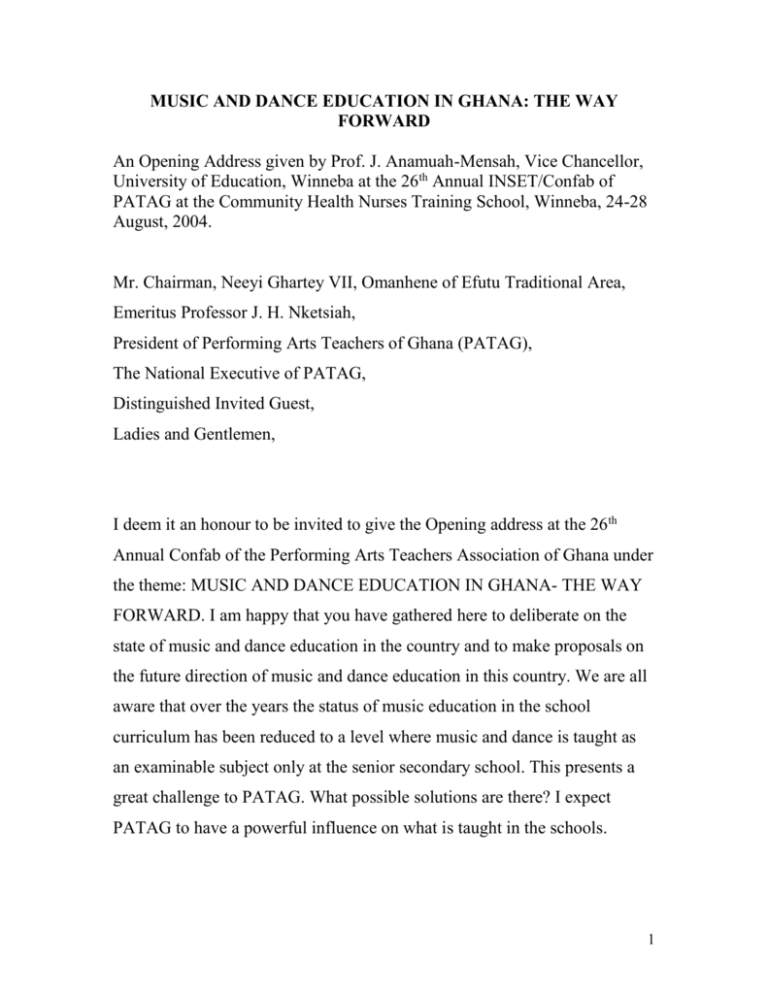
MUSIC AND DANCE EDUCATION IN GHANA: THE WAY FORWARD An Opening Address given by Prof. J. Anamuah-Mensah, Vice Chancellor, University of Education, Winneba at the 26th Annual INSET/Confab of PATAG at the Community Health Nurses Training School, Winneba, 24-28 August, 2004. Mr. Chairman, Neeyi Ghartey VII, Omanhene of Efutu Traditional Area, Emeritus Professor J. H. Nketsiah, President of Performing Arts Teachers of Ghana (PATAG), The National Executive of PATAG, Distinguished Invited Guest, Ladies and Gentlemen, I deem it an honour to be invited to give the Opening address at the 26 th Annual Confab of the Performing Arts Teachers Association of Ghana under the theme: MUSIC AND DANCE EDUCATION IN GHANA- THE WAY FORWARD. I am happy that you have gathered here to deliberate on the state of music and dance education in the country and to make proposals on the future direction of music and dance education in this country. We are all aware that over the years the status of music education in the school curriculum has been reduced to a level where music and dance is taught as an examinable subject only at the senior secondary school. This presents a great challenge to PATAG. What possible solutions are there? I expect PATAG to have a powerful influence on what is taught in the schools. 1 It is said that we live in a society where music is intimately intertwined with our day to day life. Music and dance starts from the time a child is born to the time of death. The vice chancellor of the university of Cape Town, Njabulo Ndbele in a message at a benefit launch concert for the Pan African Society for Musical Arts said that “Music and dance play a major role in building cultural-national identity in the global context. Music and dance play a major role in building cultural-national identity in the global context. Music and dance play a major role in building cultural-national identity in the global context. Music knows no boundaries; it transcends cultural, ethnic and linguistic limitations as people join in dance, harmony and rhythm. It is good for the soul of a nation as it is good for the entertainment of individuals.” In the report of the President’s Committee on the Review of Education Reforms in Ghana, music was made part of a newly created subject, creative arts which according to the committee will “help to unlock the creativity of our people, inform us about society and culture; and serve as a vehicle for sharing the culture of other nations”. One issue that concerns me is the leadership of the music education in the country. Are there standards set for the attainment of skills in music at the different levels of education? Are there journals that carry the voices/ research findings of music educators? How much work is being done to document and analyze music and dance in different linguistic and geographical areas? I am told that the Efutuland with its rich but unexplored music and dance culture is a Christopher Columbus. We can probably say 2 the same thing about the Nzemas, Dagombas and others. This is a challenge to your association. Another concern of mine is the need to institute bi-annual Festival of Music and Arts for tertiary institutions at which awards can be made to talented and promising students as well as excellence in research into traditional music and arts. The hosting of this festival will rotate among the universities every two years. The Awards can be made in the names of Dr. Ephraim Amu and Prof Nketsiah the two doyens of African music. I will like to challenge you to pursue this if you find it to be acceptable. I believe you stand for excellence in the teaching and learning of your subject and that you will leave no stone unturned to ensure that you achieve this. Innovation and creativity is the hallmark of music education and it my hope that this will be nurtured in the students at the primary, JSS and SSS. I wish you fruitful deliberations during you stay here. I now have the priviledge to formally declare the 26th PATAG Confab opened. Thank you and God Bless you. 3


